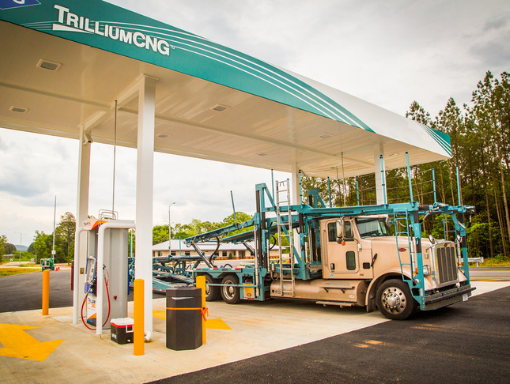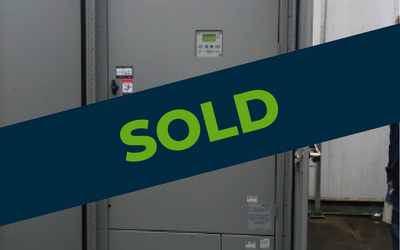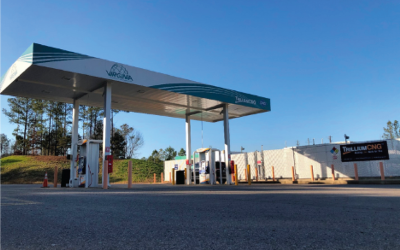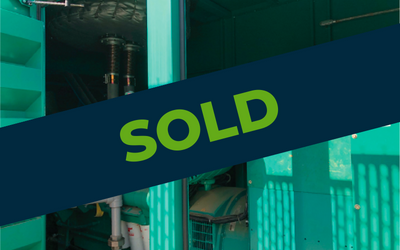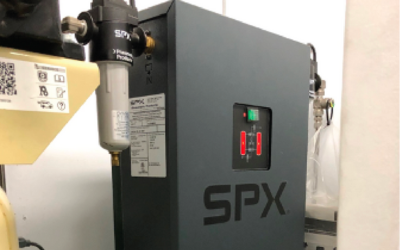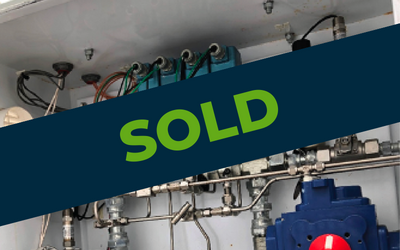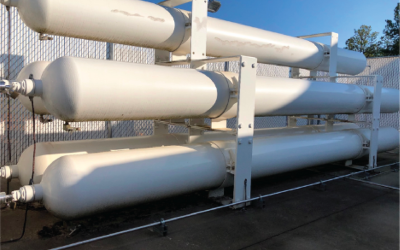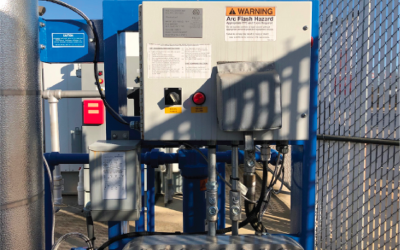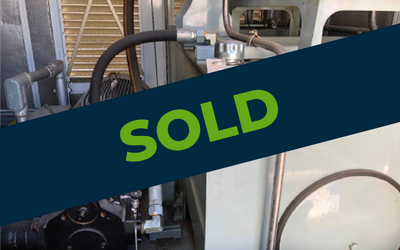Why CNG?
CNG is produced by compressing natural gas to less than 1% of its volume at standard atmospheric pressure
Natural Gas Benefits and Considerations
Whether produced via conventional or renewable methods, the advantages of natural gas as an alternative fuel include its domestic availability, established distribution network, relatively low cost, and emissions benefits.
Renewable natural gas (RNG) and conventional natural gas, must be compressed (CNG) or liquefied (LNG) for use in vehicles. Like any alternative fuel, there are some considerations to take into account when contemplating the use of natural gas.
Energy Security
The United States imported 3% of its petroleum in 2019, and the transportation sector accounts for approximately 30% of total U.S. energy needs and 70% of U.S. petroleum consumption. Using natural gas and other alternative fuels and advanced technologies to reduce fuel consumption continues to strengthen national security and reduce transportation energy costs for businesses and consumers.
Vehicle Performance
Natural gas vehicles (NGVs) are similar to gasoline or diesel vehicles with regard to power, acceleration, and cruising speed. The driving range of NGVs is generally less than that of comparable gasoline and diesel vehicles because, with natural gas, less overall energy content can be stored in the same size tank. Extra natural gas storage tanks or the use of LNG can help increase range for larger vehicles.
In heavy-duty vehicles, dual-fuel, compression-ignited engines are slightly more fuel-efficient than spark-ignited dedicated natural gas engines. However, a dual-fuel engine increases the complexity of the fuel-storage system by requiring storage of both types of fuel and the integration of diesel after-treatment devices.
Lower Emissions
All new vehicles are equipped with effective emission control systems and must meet the same emissions standards, regardless of fuel type. Consequently, tailpipe emissions from natural gas vehicles are comparable to those of gasoline and diesel vehicles equipped with modern emissions controls. According to Argonne National Laboratory’s Greenhouse Gases, Regulated Emissions, and Energy Use in Transportation (GREET) model, light-duty vehicles running on conventional and shale natural gas can reduce life cycle greenhouse gas emissions by 15% (84% if running on RNG). In addition, because CNG fuel systems are completely sealed, the vehicles produce no evaporative emissions.
Natural gas produced via renewable methods offers additional benefits. Renewable natural gas (RNG) is essentially biogas—the gaseous product of the decomposition of organic matter—that has been processed to purity standards. Capturing biogas from landfills and livestock operations reduces emissions by preventing methane release into the atmosphere. Methane is 25 times stronger than carbon dioxide as a greenhouse gas. Additionally, producing biogas through anaerobic digestion reduces odors and produces nutrient-rich liquid fertilizer.
Infrastructure and Vehicle Availability
A variety of new, heavy-duty natural gas vehicles are available from U.S. original equipment manufacturers. For availability, see the Alternative Fuel and Advanced Vehicle Search.
Fleets and consumers also have the option of reliably converting existing gasoline or diesel vehicles for natural gas operation using qualified system retrofitters. Qualified system retrofitters can economically, safely, and reliably convert many vehicles for natural gas operation. It is critical that all vehicle and engine conversions meet the emissions and safety regulations and standards instituted by the U.S. Environmental Protection Agency, the National Highway Traffic Safety Administration, the National Fire Protection Agency’s NFPA 52 Vehicular Gaseous Fuel Systems Code, CSA Group’s CSA/ANSI NGV 6.1 code, and state agencies like the California Air Resources Board.
Although the United States has an extensive natural gas distribution system in place, vehicle fueling infrastructure is limited. For this reason, many fleets choose to install their own natural gas fueling infrastructure, which can be costly, or partner with other fleets to establish shared infrastructure. Partnering on infrastructure this way has many benefits, such as reduced payback period and higher throughput, which often translates to lower fuel costs.
Source: U.S. Department of Energy’s Vehicle Technologies Office. “Alternative Fuels Data Center.” U.S. Department of Energy, 2021, afdc.energy.gov.
More Resources From The Alternative Fuels Data Center:
CNG Basics
CNG is produced by compressing natural gas to less than 1% of its volume at standard atmospheric pressure. To provide adequate driving range, CNG is stored onboard a vehicle in a compressed gaseous state at a pressure of up to 3,600 pounds per square inch.
Benefits And Considerations
Whether produced via conventional or renewable methods, the advantages of natural gas as an alternative fuel include its domestic availability, established distribution network, relatively low cost, and emissions benefits.
Laws and Incentives
State and federal governments enact laws and provide incentives to help build and maintain a market for natural gas fuel and vehicles.
See All Inventory
Automatic Transfer Switch
This equipment is no longer available. Please click here to view our inventory.See All InventoryHave Questions?Fill out the form below and we will be in touch.Looking For Pre-Owned CNG Equipment? We have pre-owned...
MCC Building
Prefabricated MCC Building PackageThis equipment is no longer available. Please click here to view our inventory.See All InventoryHave Questions?Fill out the form below and we will be in touch.Looking For Pre-Owned...
CNG Dispensers & Canopy
Packager: Kraus Global / Gilbarco (2) TWIN-HOSE DISPENSER Model: HAM-2DCGG-P63CX12B2B01Flow Meter: Micro-Motion CNG 50Nozzle: (1) OPW CT1000, (1) OPW CC6000 per dispenserMAWP: 4,500 PSIFiltration: 2 Parker J4 Housing DISPENSER PIT Packager: APTModel: LMD-3617Size:...
Generator
This equipment is no longer available. Please click here to view our inventory.See All InventoryHave Questions?Fill out the form below and we will be in touch.Looking For Pre-Owned CNG Equipment? We have pre-owned...
Air Compressor System
Packager: Ingersoll RandType: 5-HP Splash Lube Air CompressorModel: 2340L5-VVoltage: 480 VAC, 3-PhaseAir Tank: 60 GallonControls: Integrated Motor Contractors Compressor Air Dryer: SPX Desiccant Type DHW 13Voltage: 120 VAC, Single-PhaseSee All InventoryHave...
CNG Valve Panel
This equipment is no longer available. Please click here to view our inventory.See All InventoryHave Questions?Fill out the form below and we will be in touch.Looking For Pre-Owned CNG Equipment? We have pre-owned...
CNG Storage Vessels
- 5 Available -Packager: CP IndustriesPressure Rating: 5,500 PSIGWater Volume: 34.20 CU. FT. EachCNG Volume: 11,340 SCF Each @ 4,500 PSITotal CNG Volume: 56,700 SCF @ 4,500 PSILength: 23’Outside Diameter: 20”See All InventoryHave Questions?Fill out the form below and...
Natural Gas Dryer
Packager: PSB Industries Inc., Erie, PAMModel: NG-SR-10-3-DDPInlet capacity: 755 SCFM @ 150 PSIConnection Size: 4” 150 LB FlangedPower: FLA 39.7A, 460 V/3 Phase/60 HZController: Allen Bradley Compact Logix Point I/OBypass: Butterfly ValveSee All InventoryHave...
HYC Compressor Package
This equipment is no longer available. Please click here to view our inventory.See All InventoryHave Questions?Fill out the form below and we will be in touch.Looking For Pre-Owned CNG Equipment? We have pre-owned...
Have Questions?
Fill out the form below and we will be in touch.
"*" indicates required fields

